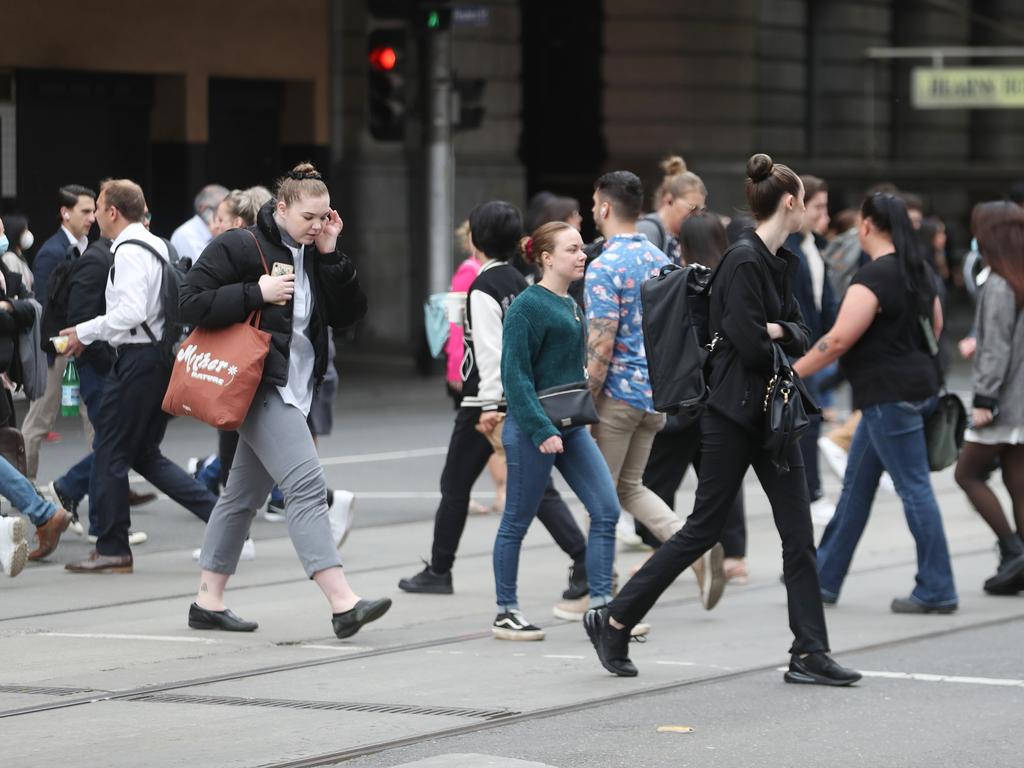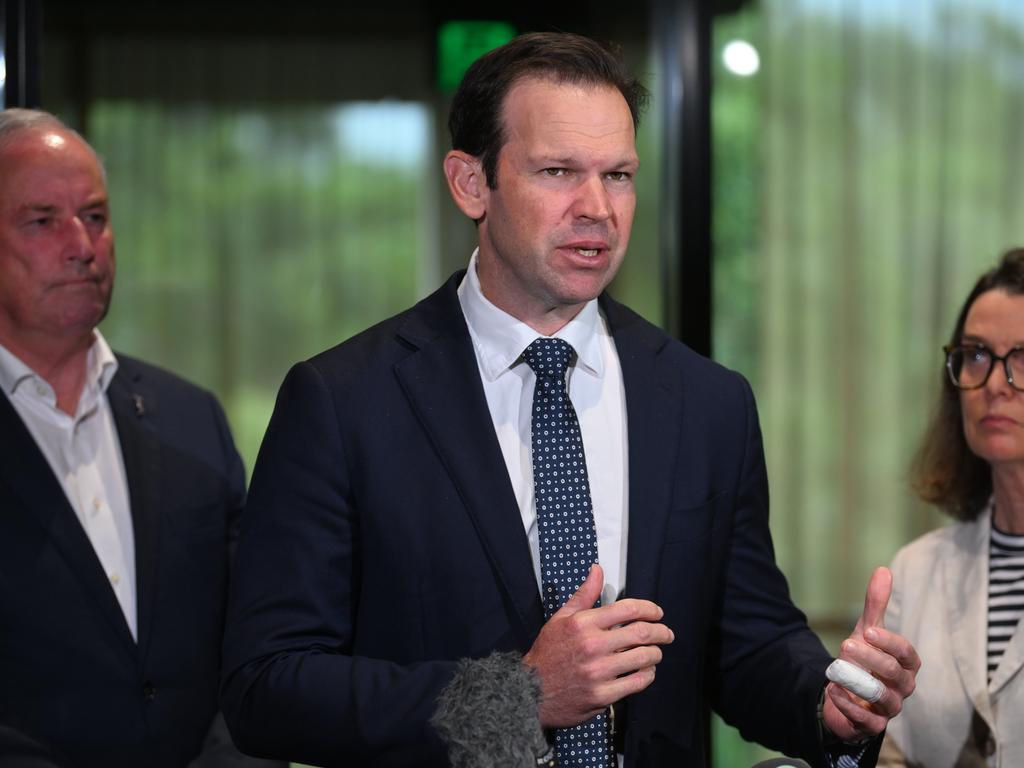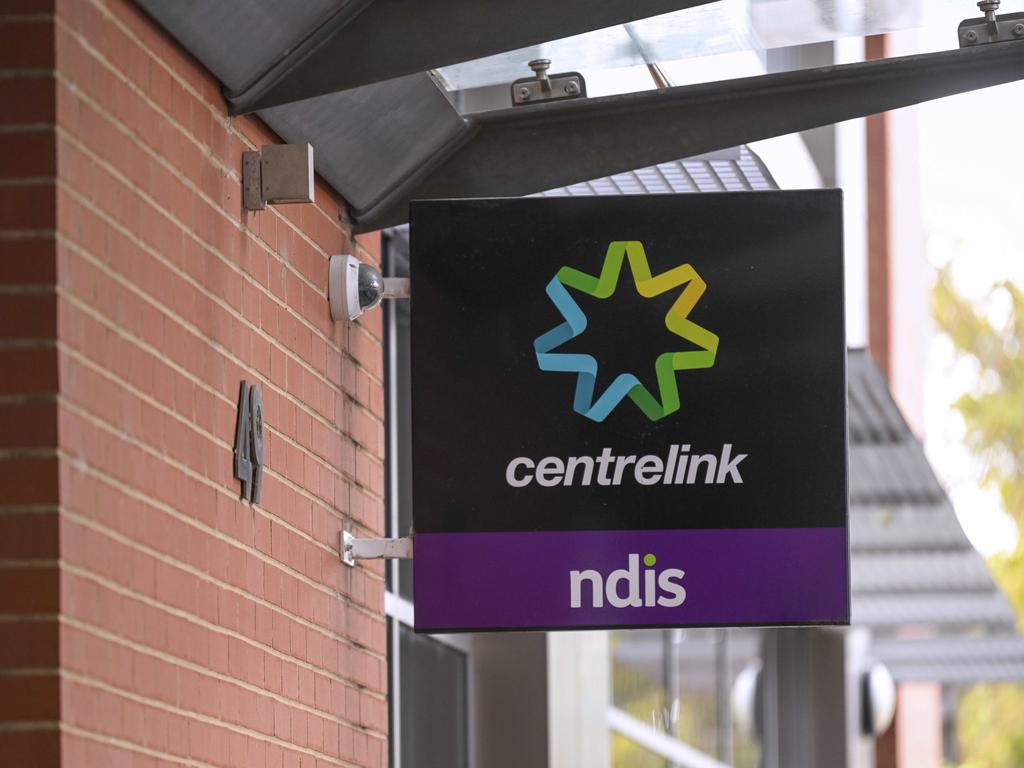‘Australia needs its own DOGE’: One in five workers is a public servant as wages bill hits $232 billion
Nearly one in five workers in Australia is now a government employee as the total wages bill skyrockets to $232 billion.
Donald Trump’s appointment of Elon Musk to rein in wasteful spending in the US government has prompted calls for a similar crackdown on “bureaucratic bloat” in Australia.
Nearly one in five workers in Australia is a government employee, with wage rises — far outpacing those in the private sector — and hiring sprees driving public sector spending to a record 27.3 per cent of GDP in the June quarter.
“The government’s massive expansion of the public payroll just adds to inflation,” Nationals Senator Matt Canavan told news.com.au.
“Everyone else is tightening their belt and we need the government to as well so we can lose the mantle as the developed country with the highest inflation in the world.”
The latest inflation figures for the September quarter showed price rises eased to a three-year low of 2.8 per cent — but the all-important underlying inflation, which removes any volatile changes, remained above the Reserve Bank’s target at 3.5 per cent.
Shadow Finance Minister Jane Hume told Sky News on Monday public sector spending at state and federal levels was the “biggest driver” of inflation.
“It’s not just the Coalition that are saying this — it is the IMF, it is the Reserve Bank,” Ms Hume said. “The only way to deal with a national crisis is with a national response.”
Australia had 2,517,900 public sector employees in June, with 365,400 of those in the federal government, 1,939,100 in state government and 213,500 in local councils, according to the Australian Bureau of Statistics (ABS).
That equates to more than 17 per cent per cent of the total working population, which was 14,402,500 in the same month.

MORE: A guide to the average salary in Australia
The total public sector wage bill in Australia grew 8 per cent last financial year to $232.1 billion, including $37.3 billion for federal government employees who earned an average annual salary of more than $100,000.
The 8 per cent rise in wages was the fastest pace in 15 years, sparking warnings from economists that government spending was contributing to inflation and keeping interest rates higher for longer.
UBS chief economist George Tharenou told The Australian Financial Review earlier this month public sector wages had more than doubled since 2008-09, the last time salaries grew by more than 8 per cent.
The Albanese government was one of the major drivers of the increase, recording 10 per cent more employee expenses in 2023-24 off the back of a 4 per cent rise in headcount and a nearly 5.5 per cent rise in wages.
More than 8700 new federal workers have been hired since Labor took office as part of an insourcing drive to cut down on the use of external consultants.
States accounted for 77 per cent of public sector employment, which includes frontline workers like nurses, teachers and police.
NSW, the nation’s largest single employer with 557,400 state government workers as of June, spent $52.4 billion on wages and salaries last year.
Mr Tharenou told The Australian Financial Review public sector employment grew by 6.3 per cent over the year to June, the fastest pace on record.
“Overall, the recent strength in public employment is largely offsetting the weaker trend in private employment, and hence keeping the overall labour market remarkably resilient, and relatively tight,” he said.

MORE: Government selection process
MacroBusiness chief economist Leith van Onselen said Australia’s economy was “hamstrung by bureaucratic bloat”.
“Since Q1 2022, just before the Albanese government came to office, overall employment across the Australian economy has grown by 4.1 per cent,” he wrote last week.
“Nearly all of this job growth has come from the non-market (government-aligned) sector, where the number of jobs has expanded by an extraordinary 11.6 per cent. Much of this job growth is related to the National Disability Insurance Scheme (NDIS). In comparison, job growth across Australia’s market sector has stagnated, growing by only 1.1 per cent over the same period.”
Matthew Camenzuli, a software entrepreneur and former member of the NSW Liberal Party state executive, said it was “unsustainable” that Australia was “carrying a public service that costs more than the tax base”.
“Something’s got to give,” he told news.com.au.
Mr Camenzuli suggested the size of the public sector had grown so large because “I don’t think anybody was really paying attention”.
“The problem is you’ve got three layers of government … they’re all doing their own thing in some way,” he said.
“It’s also a symptom of regulations. Australia is heavily over-regulated. A lot of these regulations then have supporting teams. You’ve got to have an inspector class, an enforcer class … every time the government writes another document, the more rules we have, the more bureaucracy is necessary on the back end, and every level of government is writing more and more rules.”

Mr Camenzuli said Australia “needs its own DOGE” — and the first task should be eliminating duplication across the three levels of government.
“Labor has been talking very much about how they’re keeping unemployment lower by creating all these jobs — they’re not supposed to actually be creating the jobs,” he said.
He added the “really shocking” thing was the average public servant was now paid more than the average private sector worker.
“Once upon a time we all knew that the public service was a little bit bludgey, you get a bit more benefits, but you didn’t get paid as much,” he said.
“Now you can get paid more and work less. Nearly everyone’s back to the office now except the public service. It takes forever to do things that used to be quick. We’re not getting good-quality customer service from our governments, which are more focused on workers’ health and happiness than serving their clients, the taxpayers.”
The Community and Public Sector Union (CPSU) hit back at the criticisms.
“Australians are finally beginning to see public sector investment and rebuilding pay off,” CPSU national secretary Melissa Donnelly said in a statement to news.com.au.
“Peter Dutton has a predictable plan for a barebones public service, where his mates in big businesses like PwC and KPMG get all the public sector work outsourced to them and charge through the roof for it. In the final year of the Morrison government, the outsourcing bill totalled $21 billion and public services were hanging by a thread.”
Ms Donnelly said under the Coalition, “veterans were getting lost in a backlog of more 40,000 but now veterans are getting the help they need and deserve”.

“Centrelink calls are being answered seven-and-a-half minutes faster and Medicare calls 11-and-a-half minutes faster,” she said.
“And claims are being processed more quickly, with Paid Parental Leave claims now being processed within three days, down from 31 days. Aged Pension claims are being processed in 49 days, down from 84, and Youth Allowance claims are being processed in 10 days, down from 28.”
Ms Donnelly said if the opposition leader was “going to undo all of this work, he needs to be honest with Australians about what public services he is planning to cut”.
“Is he going to cut from Services Australia so that new mums and dads, students and pensioners all have to wait longer?” she said.
“Is he going to make cuts that mean it takes longer to get a passport, so it’s easier for diseases to get into the country, so it’s harder for regulators to crack down on his mates in big business price gouging and taking advantage of Australian families? Or is he going to cut from DVA so that veterans waiting for support have to wait longer?”
The size of government employment across developed nations has remained relatively steady since the global financial crisis, declining from 18.2 per cent to 17.9 per cent in 2019, according to the Organisation for Economic Co-operation and Development (OECD).
Nordic countries including Norway, Sweden and Denmark have the highest levels of government employment in the OECD, reaching as high as 30 per cent.
By contrast, government employees make up only 6 per cent of total workers in Japan and 8 per cent in South Korea.






